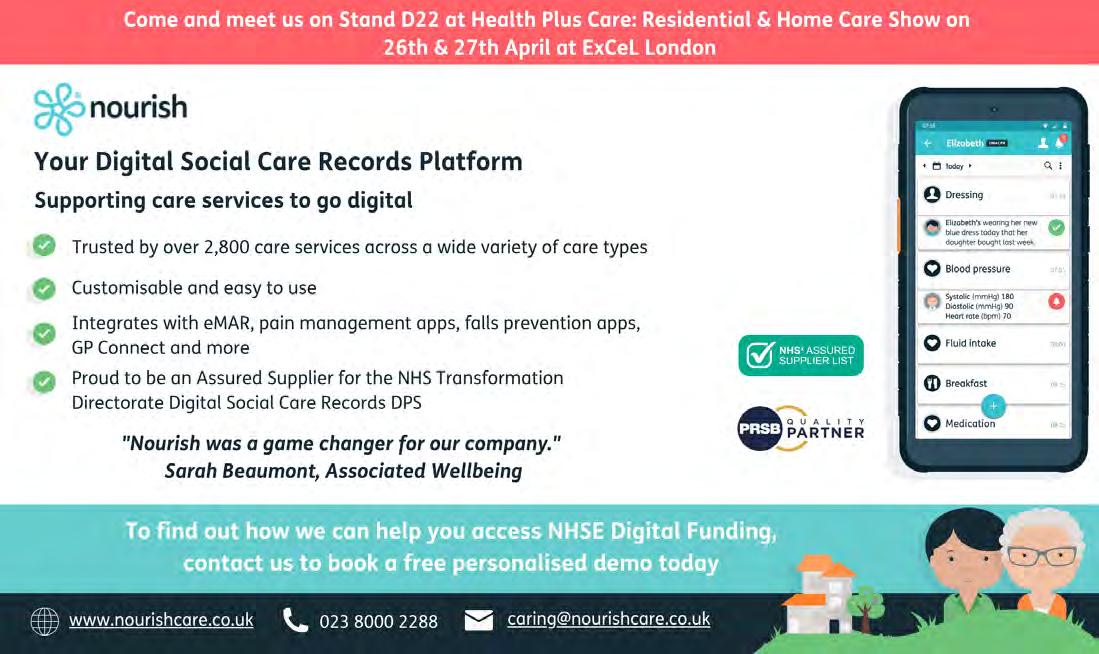
1 minute read
New social care technology guide
A new guide has been launched to help councils and social care providers when introducing new and emerging technology into adult social care.
The guide sets out recommendations for councils and social care providers looking to implement new and emerging technology, including AI and other data-intensive forms of technology. It is produced by the University of Birmingham and RAND Europe, through the BRACE Rapid Evaluation Centre, and is co-badged by Digital Social Care and social care partners within the NHS England Transformation Directorate.
The booklet distils findings from a BRACE study, funded by the National Institute for Health and Care Research, which looked at decision making and implementation processes for home sensors with AI capabilities, which had been piloted across different social care sites in England.
Despite this potentially powerful use of AI technology, the study found that there were issues with implementation and decision making which kept the technology from meeting expectations in terms of having a positive impact on care.
Helen Whately, Minister for Social Care at the Department of Health & Social Care, said, ‘As part of our social care reforms we will encourage care providers to take up opportunities to use technology to improve care, but this won’t happen overnight. That’s why we’ve helped to develop this guide. It will help care organisations make more use of innovations in what they do day-to-day. It’s a great way to make caring better and easier – whether that’s reducing the number of forms to fill out or adopting better technology to allow people to live at home independently for longer.’










